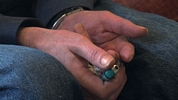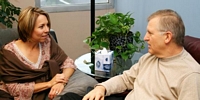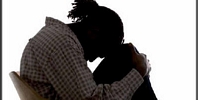|
|
 Acne (1,500) Acne (1,500)
 Addictions (1,500) Addictions (1,500)
 Advice (1,500) Advice (1,500)
 Allergies (1,092) Allergies (1,092)
 Alternative Medicine (1,500) Alternative Medicine (1,500)
 Anti Aging (1,500) Anti Aging (1,500)
 Breakup (1,500) Breakup (1,500)
 Cancer (1,499) Cancer (1,499)
 Dental Care (1,500) Dental Care (1,500)
 Disabilities (1,500) Disabilities (1,500)
 Divorce (1,500) Divorce (1,500)
 Elderly Care (1,498) Elderly Care (1,498)
 Goal Setting (1,500) Goal Setting (1,500)
 Hair Loss (1,500) Hair Loss (1,500)
 Health and Safety (1,497) Health and Safety (1,497)
 Hearing (1,500) Hearing (1,500)
 Law of Attraction (1,499) Law of Attraction (1,499)
 Marriage (1,500) Marriage (1,500)
 Medicine (1,497) Medicine (1,497)
 Meditation (1,499) Meditation (1,499)
 Men's Health (1,500) Men's Health (1,500)
 Mental Health (1,500) Mental Health (1,500)
 Motivational (1,500) Motivational (1,500)
 Nutrition (1,495) Nutrition (1,495)
 Personal Injury (1,499) Personal Injury (1,499)
 Plastic Surgeries (1,500) Plastic Surgeries (1,500)
 Pregnancy (1,496) Pregnancy (1,496)
 Psychology (1,500) Psychology (1,500)
 Public Speaking (1,500) Public Speaking (1,500)
 Quit Smoking (1,500) Quit Smoking (1,500)
 Religion (1,499) Religion (1,499)
 Self Help (1,500) Self Help (1,500)
 Skin Care (1,500) Skin Care (1,500)
 Sleep (1,500) Sleep (1,500)
 Stress Management (1,500) Stress Management (1,500)
 Teenagers (1,492) Teenagers (1,492)
 Time Management (1,500) Time Management (1,500)
 Weddings (1,500) Weddings (1,500)
 Wellness (1,500) Wellness (1,500)
 Women's Health (1,500) Women's Health (1,500)
 Women's Issues (1,500) Women's Issues (1,500)
|
What Is Seasonal Affective Disorder (SAD) ? Seasonal affective disorder (SAD) also known as winter depression affects around 2 million British citizens each year. Symptoms are most common in people aged between 18-30 years old. It is thought that twice as many women are affected than men, but this could be explained by the fact that men are less likely to admit to being depressed.
Sufferers usually experience no mental health problems throughout most of the year, but tend to develop depressive symptoms during the winter months. It is common that symptoms occur amongst sufferers between September and April each year with symptoms at their worst in December, January and February. Symptoms of SAD The symptoms of SAD vary between different people. A small percentage of SAD sufferers struggle to cope during the winter without continuous treatment. However for the majority of SAD sufferers, symptoms tend to be less intense and last for shorter periods of time.
The most common symptoms of SAD (of which many are associated with general depression) include: - General Depression - feeling glooming
- Mood Swings
- Social Withdrawal - not wanting to see people
- Anxiety - Inability to cope
- Lethargy / Tiredness - no energy for everyday tasks
- Sleep Problems - oversleeping and not wanting to get out of bed
- Overeating - cravings for carbohydrates, leading to weight gain
- Frequent Illness - due to a weakened immune system
- Difficulty concentrating or making decisions
- Loss of libido
What Causes SAD The exact cause of SAD is still unknown. However most theories centre on light deficiency during the winter months due to the shortening of daylight hours and a lack of sunshine.
Light helps to trigger messages to a part of the brain called the hypothalamus, which helps to control mood, sleep and appetite. A lack of exposure to light and problems with certain brain chemicals is thought to prevent the hypothalamus from functioning properly.
It is common for SAD sufferers to have lower levels of a brain chemical called Serotonin. Serotonin helps to transmit messages from nerve cells to the brain and has a role in "lifting the mood". It is thought that the development of Serotonin is affected by exposure to sunlight and therefore a lack of exposure to sunlight will mean that less Serotonin will be produced.
SAD sufferers are likely to respond to a decrease in light by producing more of a chemical called Melatonin during winter than non SAD Sufferers. Melatonin helps to slow down the body clock, affects sleep and alters mood patterns. When sufferers are treated with bright light, their Melatonin levels tend to return to normal. However using light therapy to affect Melatonin levels will not completely cure SAD. Diagnosis of SAD A GP will be able to advise you whether the symptoms present, are being caused by SAD. SAD is difficult to diagnose as the symptoms of the condition are very similar to those of other types of depression and other mental health conditions.
One occurrence of the aforementioned symptoms does not automatically mean that you have SAD.
Diagnosis will usually take place when the symptoms have been experienced during the same months (usually winter), followed by the symptoms clearing in the following months (spring), over a period of two or more consecutive years. Treatment For SAD Research in recent years has shown that SAD sufferers have responded dramatically to "light therapy". By exposing SAD sufferers to summertime levels of daylight during the winter, it is possible to reduce the negative symptoms of SAD. Research has shown that light therapy works in around 80% of people, and an improvement in symptoms can be achieved in as little as 3 to 5 days.
Light therapy (also known as photo therapy) involves exposure to very bright light for extended periods each day. The aim of light therapy is to stimulate a change in the brain chemicals and hormones that affect the mood.
Light boxes are ideal source for light therapy. A light box gives out a light that is up to 10 times stronger than normal light. The necessary length of exposure depends on the strength of the light box and the recommended daily dose of light for SAD sufferers is 5,000 lux.
Although light boxes are the ultimate source of light for SAD sufferers, functional
Before conducting any light therapy, it is advised that you visit your GP in order to decide which form of light therapy will be best for you.
|
|
|



